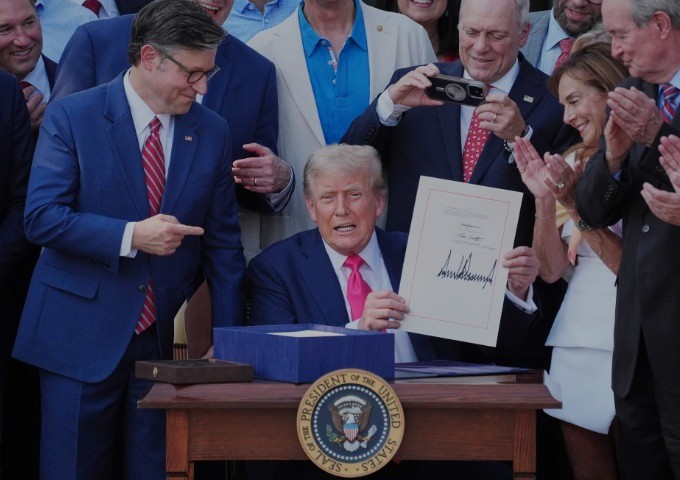The One Big Beautiful Bill Act (OBBBA), signed into law by President Donald Trump on July 4, 2025, represents one of the most sweeping pieces of legislation in recent American history. This massive budget reconciliation bill contains hundreds of provisions that fundamentally reshape federal tax policy, government spending, and regulatory frameworks across multiple sectors.
Legislative Journey and Passage
The OBBBA passed through Congress along party lines, with the Senate approving it 51-50 on July 1, 2025, requiring Vice President JD Vance’s tie-breaking vote. The House subsequently passed the Senate version 218-214 on July 3, 2025, with universal Democratic opposition in both chambers. The bill utilized the budget reconciliation process to avoid Senate filibuster rules, allowing passage with a simple majority.
Major Tax Provisions
The legislation’s cornerstone is the permanent extension of individual tax rates from Trump’s 2017 Tax Cuts and Jobs Act, which were set to expire at the end of 2025. Key tax changes include:
- Standard deduction increases of $750 for individuals, $1,500 for married couples, and $1,125 for heads of household
- State and local tax (SALT) deduction cap raised from $10,000 to $40,000 for taxpayers earning under $500,000, reverting to $10,000 after five years
- Senior tax relief providing a $6,000 bonus deduction for taxpayers 65 and older through 2028
- Tips and overtime deductions allowing workers to deduct up to $25,000 in qualified tips and $12,500 in overtime premium payments
- Child tax credit increase to $2,200 permanently
Business and Investment Incentives
The OBBBA significantly enhances business tax benefits by making the 20% small business deduction permanent and restoring 100% capital investment expensing. The legislation allows companies to immediately expense new factories and factory improvements, replacing the previous 39-year depreciation requirement. A new minimum deduction of $400 is established for small business owners with at least $1,000 in qualified business income.
Spending and Program Changes
The bill allocates substantial funding increases in key areas while implementing significant cuts elsewhere:
Increased Spending:
- $150 billion for defense, including $29 billion for shipbuilding and $25 billion for a “Golden Dome” missile defense system
- $170 billion for border security, expanding ICE funding from $10 billion to over $100 billion by 2029
- $50 billion Rural Hospital Fund to support healthcare providers in rural areas
Program Cuts:
- $1.2 trillion in federal spending cuts, primarily targeting Medicaid
- Work requirements for Medicaid recipients aged 19-64, requiring 80 hours of work monthly
- SNAP (food stamps) work requirements expanded to ages 18-64, up from the current 18-54 range
Energy and Environmental Policy
The legislation phases out clean energy tax credits from the Biden-era Inflation Reduction Act while promoting fossil fuel development. Wind and solar tax credits will be eliminated for projects starting construction after June 2026, while electric vehicle tax credits phase out by September 2025. The bill requires quarterly oil and gas lease sales and postpones methane emission fees for 10 years.
Financial Impact and Debt
The Congressional Budget Office estimates the OBBBA will increase the budget deficit by $2.8 trillion by 2034 and cause 10.9 million Americans to lose health insurance coverage. The legislation raises the debt ceiling by $5 trillion. Despite Republican arguments that extending existing tax cuts shouldn’t count as new debt, nonpartisan analysts project the bill will add $5.7 trillion to the national debt over ten years.
Full Coverage
The One Big Beautiful Bill Act fundamentally restructures American fiscal policy, delivering significant tax relief to businesses and middle-class families while implementing substantial cuts to social programs and healthcare spending.
Jersey Senior Weekly will continue to provide articles and information on how these changes affect seniors in New Jersey.


